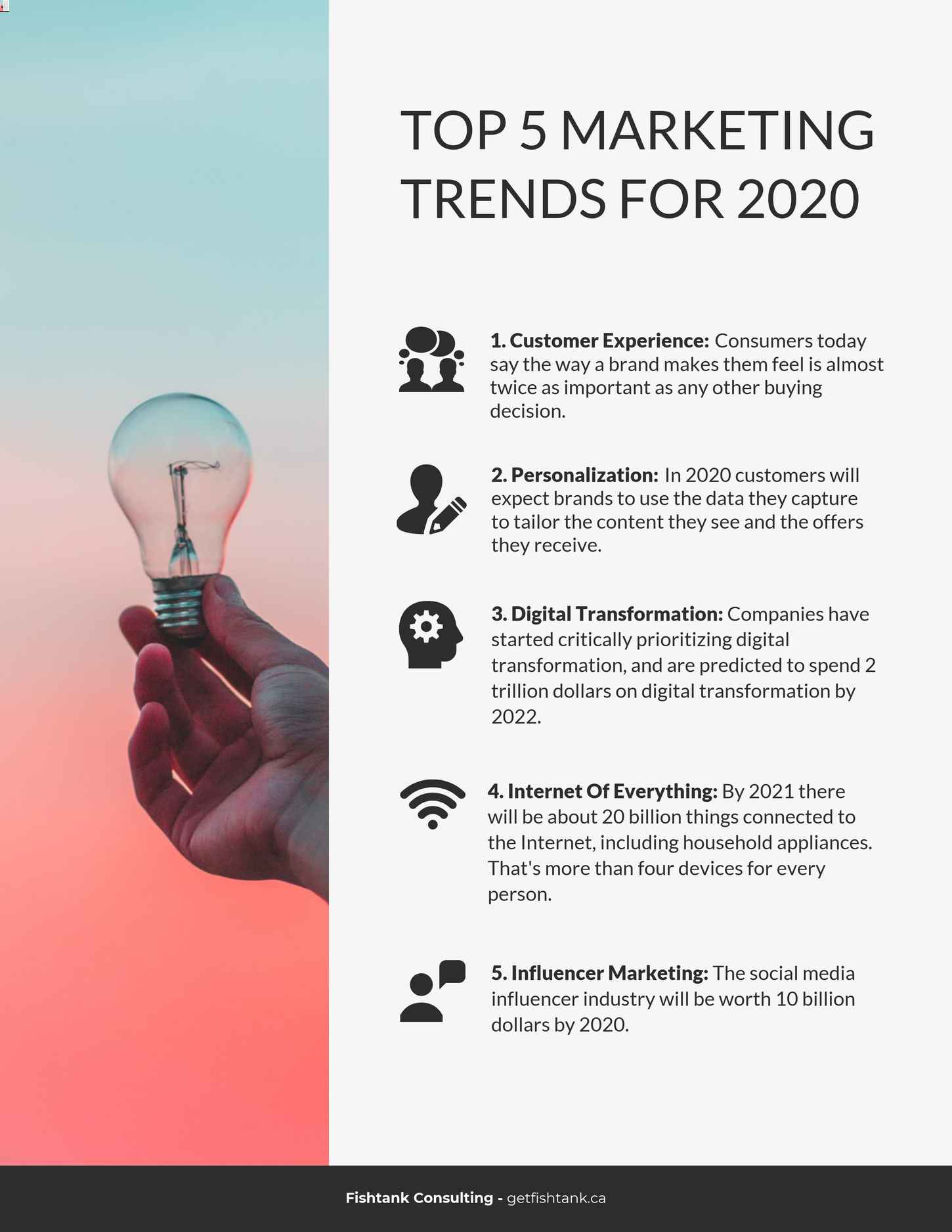Top Marketing Trends For 2020
The Trends Marketing Leaders Are Talking About
The Trends Marketing Leaders Are Talking About
Start typing to search...
As the new year approaches, I'm sure you're frantically planning your marketing strategy for 2020.
To help you get ahead of the game, we've put together a list of the biggest marketing trends for 2020 that were discussed by marketing leaders at this year's Sitecore Symposium.
Customers are becoming more interested in connecting with brands on a human and emotional level, and want to have an experience with us as people, rather than an experience with our brand itself.
Today, customers talk about their favourite brands using the same emotional language they use when speaking about their friends and family.
Consumers today say the way a brand makes them feel is almost twice as important than any other buying decision, predicted to overtake price and product as key brand differentiators in 2020.
If brands can inspire emotional engagement with their customers through the experiences they create, they can inspire action, loyalty and even emotions as powerful as love.
In 2020 businesses will be more focused on creating these authentic connections with their customers by putting them at the centre of their strategies. If they don't, they risk their customers taking their business elsewhere.
Sitecore CMO Paige O’Neill announced in her keynote speech at the 2019 Sitecore Symposium that “experience is really the word of the decade”, and that it’s human connection, emotion and personal experience that will take customer experiences with your brand to the next level in 2020.
As more people and things are connected in 2020, the way that people are accessing goods and services has changed dramatically, leading experience to become its own economy with 74% of Americans prioritizing experiences over products.
A term first coined by Harvard Business Review in 1998, the experience economy has taken 2 decades to come to fruition, and is predicted to be a big trend in the coming years, with millennials saying they'd much rather spend their money on experiences and relationships than material things.
Customers today expect their brands to know them, and expect us to personalize their interactions.
They expect us to use the data we capture to tailor the content they see and the offers they receive.
This is great for marketers, as personalization has a direct link with increased conversions.
Websites like Amazon have set the bar for personalized interactions, using AI to analyze buyer patterns and show users products they think they'll want to see, which works wonders for converting.
AI technologies like Coveo and Sitecore AI use machine learning to personalize the customer experience with a brand and show customers products and content that they'd be interested in. These technologies are changing the game for businesses that want to create personalized experiences for their customers and increase their conversion rates.
As customer experience has moved from a nice-to-have, to a mission critical business differentiator in a very short period of time, companies have started to critically prioritize digital transformation.
By about 2022, businesses will spend 2 trillion dollars on digital transformation, with retail themselves contributing 100 billion dollars of that.
There are many retailers that are leveraging social channels and technology to create an emotional and human connection with their customers - becoming extremely successful as a result.
Most of these are new brands that didn't exist 3-5 years ago, and now have extremely passionate and loyal customer bases.
As more and more people are becoming digitally connected everyday (4.5 billion at the end of 2019), more and more things are also becoming digitally connected.
By 2021 there will be about 20 billion things connected to the Internet. That's more than four devices for every person.
Toasters, lightbulbs, kitchen gadgets, appliances and salt shakers are some of the household items that are now connected to the Internet, proving that we really are starting to connect everything to the Internet.
This interconnectivity gives marketers the ability to understand their customer needs on a much deeper level, and respond at the right time, on whatever device their customers are using.
For a term that wasn't around as little as 5 years ago, social media influencers are driving a lot of buying decisions, particularly for women and teenagers.
70% of teenagers say they trust influencers more than they trust celebrities, and 86% of women say they rely on influencers to make buying decisions.
Statistics have always shown that we trust our peers more than we trust recommendations from any other source, and social media influencers are blurring those lines by becoming a peer and source we trust.
Today social media influencers are driving a tonne of traffic for retailers and are significantly influencing purchases.
By 2020, the social influencer industry is going to be worth 10 billion dollars, which is a staggering amount for an industry that just didn't exist a few years ago.
Businesses have to adapt for these marketing trends in 2020, or else they’ll risk being left behind.

Use the information in this blog to get ahead of your competition, and start your 2020 with a marketing strategy focused on customer experience and personalization. Reach out to us at [email protected] to start a conversation about how your business can begin personalizing your customer experience in 2020.